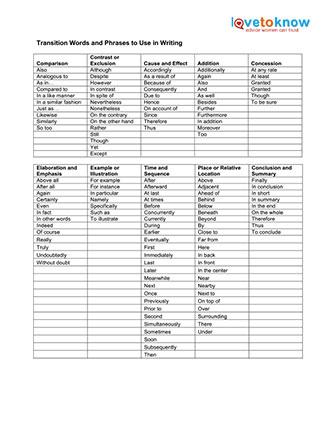
When someone who already works for a company is being considered for a promotion or lateral move within the organization, the hiring process will include an internal interview. Whether you're seeking a new position with your current employer, or you're involved with interviewing internal candidates, it's a good idea to consider what kinds of questions are appropriate in this situation.
Company-Specific Internal Interview Questions
Internal interviews will usually include a combination of typical interview questions and ones that relate to the unique insights the candidate has as someone who already works for the company.
- Why did you decide to come to work here to start with? An interviewer who asks this is interested in finding out what led you to the organization in the very beginning. Be honest about why you decided to accept the job you were in, but also explain how your commitment to the organization has grown throughout the time you've been there. If you can honestly say you'd accept a job with the firm all over again, that would be good information to share.
- What are your thoughts about the current direction of the company? With this kind of question, the interviewer is looking to discover how savvy the interviewee is about the organization's strategies, goals, and objectives. If you're the interviewee, state your understanding of what the current direction is, and share your perspective on what this means for the future of the organization.
- How closely aligned are you with the culture of the organization? An interviewer would ask something like this in order to determine if the candidate really sees the company's culture as the right fit for them. This impacts whether the individual is likely to stay with the company. If asked this question, describe the culture as you understand it, and explain how it is consistent with your work preferences, values, and career goals.
- How long do you plan to stay with the company? An interviewer might ask something like this to get a sense if you're really looking to advance within the company, or if you're just looking for a promotion. Let the interviewer know what your career goals are. Explain how the internal promotion or transition you're applying for fits into those goals, and express that you'd like to stay with the company indefinitely, as long as you're able to make progress toward your goals.
- If you could change one thing about the company, what would it be? Why? With this question, an interviewer wants to get a sense of what aspect of the organization you feel most needs to be improved and why. Be prepared to provide a thoughtful response to this question with a fact-based reason to back up your recommendation.
Growth in Your Current Role
When considering internal candidates, hiring managers often want to get a sense of what has happened during the time the candidate has been with the company to prepare them to move to a new position or take on a greater level of responsibility.
- In what ways have you grown as a professional during your time here so far? An interviewer who is considering an internal candidate for a new role will ask this to be sure that the applicant has taken advantage of opportunities to grow and develop. Be prepared to explain how far you have come in your time with the company and how the lessons you've learned along the way will serve you well in your new role.
- What one thing about your work here so far makes you the proudest? Interviewers ask this question to get a sense of what internal candidates tend to prioritize, as this is an indicator of what motivates a person. Focus on an accomplishment that had a positive impact on your team, the department, or the overall organization. Answering in this manner will position you as a results-oriented team player.
- What have you learned about yourself as an employee during your time here? This question is designed to encourage candidates to reflect on their experience with the organization and how it has informed their career path. Have you learned that you prefer collaboration over independent work? Have you discovered that you are a skilled mentor? Have you learned to let go of counterproductive perfectionism? Share your insights with the interviewer.
- What do you know now that you wish you had been told when you first started? The purpose of this question is to get a sense of how tuned in you are to what is needed to set new hires up for success. If you're applying for a management job, this is something you should consider before your interview and be prepared to answer. Maybe the answer lies with how performance is evaluated, or the company's focus on innovation.
- What would your co-workers say if I asked them if you should be promoted? The way a candidate answers this question lets an interviewer see how tuned in the candidate is to the perceptions of others. Consider what the people with whom you work the most closely could honestly say about you if asked to provide a recommendation for you to the job you're applying for. Share that information with the interviewer.

Interest and Motivation Questions
When interviewing internal candidates, hiring managers or HR professionals want to get a good idea of why an applicant wants to move to a new role, and how the new role matches their professional interests.
- Why should you be selected for this internal move? The purpose of this question is to see how effectively the candidate is able to pitch themself as an ideal choice for the job. If you're interviewing for an internal move, you should prepare an answer that conveys exactly what makes you a better choice for this position versus others who work for the company, as well as external candidates.
- Why do you want this position? When speaking with internal candidates, interviewers often directly ask why the individual is seeking the new opportunity. As an internal candidate, you should be able to verbalize the specific reason you're interested in moving into this particular position. Maybe you want to stay with the company and are ready for a new challenge. Maybe this position has been your goal all along. State your reasons and elaborate on why you're a fit.
- How does this new role fit in with your interests? With this type of question, an interviewer is trying to get a sense of whether the candidate is truly a fit for the job. Someone who has the skills but isn't really interested in what they are doing isn't likely to succeed or stay. Be prepared to clearly verbalize how the job duties and tasks align with specific areas of interest that are important to you.
- How does this position fit into your long-term career plans? When an interviewer asks this, they want to make sure that the internal move a candidate is asking for is something that really makes sense for them to do, rather than just being a chance to do something different. Explain how this position represents a move in the direction of accomplishing your ultimate career goal, whatever it may be.
- What aspects of your current job do you find the most rewarding? With this type of question, the interviewer is looking to be told that the candidate is highly motivated by aspects of the current job that are also present in the job they are seeking. Interviewees should explain what they enjoy most in their current role, then relate how they expect to find similar satisfaction if selected for the new position.
Questions About Transitioning to a New Position
When an internal candidate is being considered for a lateral move or promotion, it's natural for the decision-maker to want to get a sense of whether the person will be able to smoothly transition to a new role.
- How will you approach giving up your current role to move to a new one? An interviewer who asks this question is looking to see if you'll handle an internal change with grace and professionalism. Let the interviewer know that you'll work diligently to train your replacement and be available for questions without overstepping or trying to control how the person who moves into your former position approaches the role.
- How will you handle supervising people who have been your peers? Interviewers tend to ask this question when someone is looking to be promoted to supervising the team they are currently on. If you're in this position, be sure to explain that you understand how important it is for managers to maintain an appropriate distance from direct reports, while also maintaining a strong professional relationship.
- How do you think your teammates will react if you get this job? An interviewer will ask this question to get a sense of whether an internal candidate has considered the impact their move might have on close co-workers. Explain how you would tell them about your move in a way that won't cause concern or leave them feeling like you are abandoning them.
- Who among your co-workers would be best suited to take over the role you are in now? With this question, the interviewer is hoping to discover if you've thought about who would be well-suited to replace you if you are selected for a new role. Take the time to consider who you'd recommend and why that individual is the person you'd choose.
- What training do you expect to need if selected for this new role? An interviewee's answer to this question will shed light on whether the individual has a realistic idea of what it will take to succeed in the new role. As an internal candidate, consider what skills you'll need to develop or improve, and be prepared to verbalize how you can go about doing so. Consider also discussing the skills you already have that will give you a head start in the new position.
Effective Internal Interviews
Whether you're the one asking the questions or the one hoping to be offered a new job with your current company, preparing for an internal interview can be challenging. Being prepared to ask the right questions is the key for interviewers to be able to make wise hiring decisions. For internal candidates, being able to answer difficult interview questions honestly and persuasively can help you position yourself for a promotion or a new opportunity at work.







